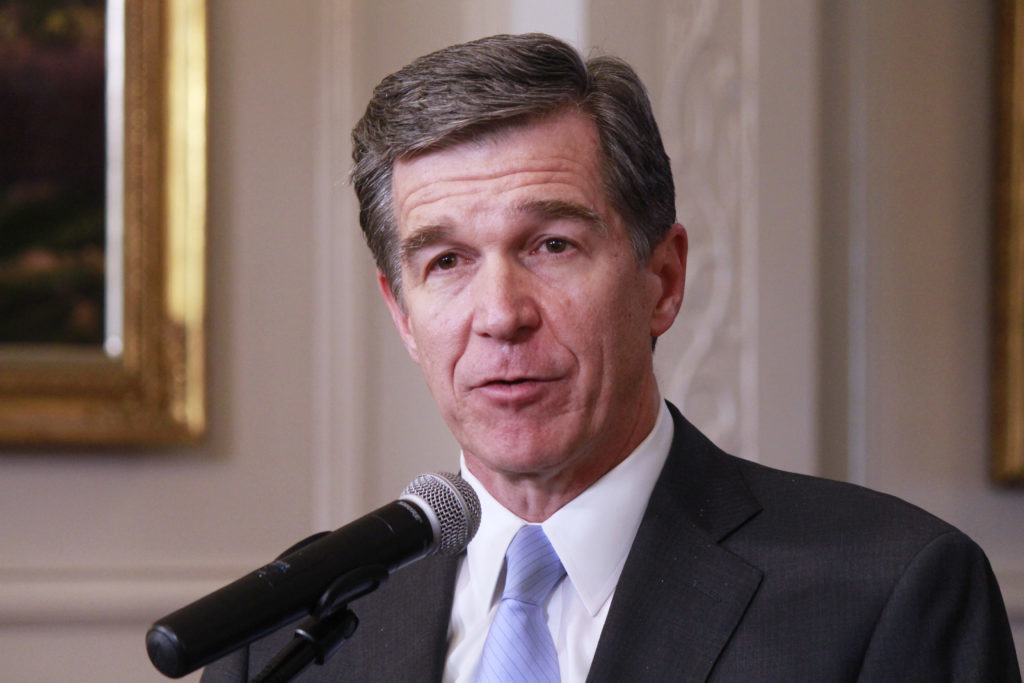
Last week, Gov. Roy Cooper and Senate President Pro Tem Phil Berger laid out contrasting visions for North Carolina state government. Cooper’s vision was of an active government raising taxes to spend more on broadband, school construction, free community college, and Medicaid expansion. Berger offered a government of more limited ambition and cost. Larger Democratic minorities in the North Carolina House and Senate will test the ability to find common ground between these two visions.
In his State of the State address, Cooper complimented the General Assembly for their willingness to put money toward roads, hurricane recovery, and incentives for large employers to locate in North Carolina. He chided legislators for cutting taxes as he called for still higher spending of state and federal taxes for Medicaid, broadband, school construction, tuition-free community college, and other programs. In their response, Republicans complained the governor had opposed farm assistance multiple times and had been slow to spend available money for recovery efforts dating back to Hurricane Matthew in 2017.
There were no grand new initiatives in the State of the State address. Part of this is due to Cooper’s lack of success moving his high-price agenda through the legislature the past two years. His top priorities are still unfulfilled, particularly higher taxes and a massive $1.4 billion expansion of Medicaid that would entail new federal borrowing and new taxes on health care providers. Perhaps that is why his theme for the evening was “determined,” which he said in some variation 17 times in his 39-minute speech.
Gov. Cooper’s legislative director Lee Lilley said the legislative session will end “when we get Medicaid expansion,” but Sen. Berger made clear in his response to the State of the State that he is just as determined to keep spending and taxes low and to block Medicaid expansion.
For his part, Berger used his own story to emphasize the importance of education for people to thrive in a dynamic economy. The quality of one’s education should not be limited by “ZIP code, color or family income,” he said, which is why the General Assembly has passed a series of teacher raises and expanded the choices parents have for their children.
Berger highlighted some statistics both political parties and everyone in North Carolina can be excited about in education: “The number of African American adults with a high school diploma has jumped by 17 percent since 2011, and the number with a Bachelor’s Degree [sic] has gone up by 39 percent, with African American women leading the way with a 42 percent increase. … Since 2011, the gap in high school graduation rates between African American students and all students has been cut in half, from 6.4 percent to 3.1 percent.”
That said, there is still much left to do to reduce the rate at which African American boys and men end up in the criminal justice system and to increase the rate at which all men enter the workforce. North Carolinians also care about those who may be willing, but physically or otherwise unable to work and earn enough to provide for their own needs. Many people even consider providing such assistance to be part of what makes a successful life. A half-century of government programs to fill this need, however, has proven that assistance is beyond the reach of policy.
What is within the realm of policy is to keep taxes low, spending in check, and regulatory burdens from becoming excessive. Sen. Berger said as much in his response. Gov. Cooper’s speech is a reminder he is refusing to admit that there are limits to government’s proper role in society or its ability to accomplish the tasks it sets for itself if it can just raise enough money through taxes.
The budget battle will be the next act in this conflict of visions. I discuss Gov. Cooper’s proposed budget and the Republican response in part two.




